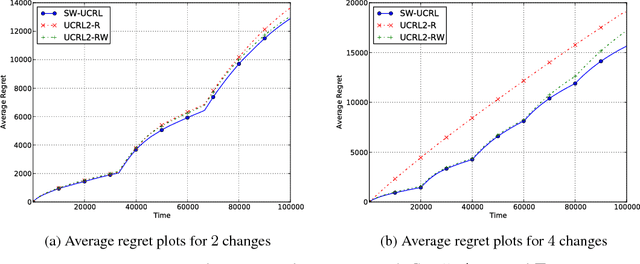A Sliding-Window Algorithm for Markov Decision Processes with Arbitrarily Changing Rewards and Transitions
Paper and Code
May 25, 2018
We consider reinforcement learning in changing Markov Decision Processes where both the state-transition probabilities and the reward functions may vary over time. For this problem setting, we propose an algorithm using a sliding window approach and provide performance guarantees for the regret evaluated against the optimal non-stationary policy. We also characterize the optimal window size suitable for our algorithm. These results are complemented by a sample complexity bound on the number of sub-optimal steps taken by the algorithm. Finally, we present some experimental results to support our theoretical analysis.
 Add to Chrome
Add to Chrome Add to Firefox
Add to Firefox Add to Edge
Add to Edge